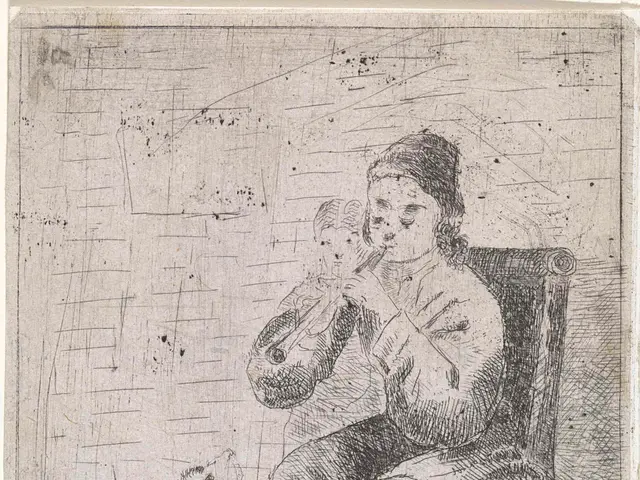Spouse Confronted Through Coffee Cup Reading by ChatGPT Prompts Wife to Initiate Divorce Proceedings in Greece
In an intriguing twist from Greece, a woman has taken drastic steps after using an AI chatbot to accuse her husband of infidelity. As reported by Greek City Times, she ventured into modern divination using ChatGPT, and ended up claiming the AI revealed her spouse's alleged affair.
The couple, together for over a decade and parents of two children, engaged in the unconventional practice of consulting ChatGPT with pictures of their coffee cup residue, seeking its interpretation. Shockingly, according to her account, the AI implicated her husband as being involved with a younger woman intent on disrupting their family. The AI even predicted a mysterious woman with the initial 'E' as his "destined partner," while her own reading hinted at betrayal and family turmoil.
Unfazed, the husband brushed off the claims, labeling them baseless and attributing the whole ordeal to his wife's fascination with viral trends. "I thought it was all bunk. But she took it seriously. She demanded I leave, informed the kids about our divorce, and I even got a summons from a lawyer. That's when I realized this wasn't just a phase," he said.
Unrelenting, the woman filed for divorce just three days later.
The husband, with the help of a lawyer, responded by clarifying that an AI-generated coffee cup reading could not be used as evidence in court to prove adultery. "He's innocent until proven guilty," the lawyer stated.
The case has sparked a flurry of discussion and controversy on Greek social media. However, legal experts have emphasized that AI-generated claims carry no weight in court.
A Deeper Look: AI and Legal Proceedings
While AI chatbots have gained popularity in personal matters, they hold no validity as evidence in legal proceedings for establishing facts. The lack of objectivity and scientific basis in AI tools like ChatGPT render them unreliable sources for proving personal matters, such as adultery.
Moreover, there exist no legal precedents supporting the use of AI chatbot interpretations as evidence in divorce cases. The legal system relies on verifiable evidence and eyewitness testimony to establish facts. In this case, the husband's lawyer emphasized that his client is considered "innocent until proven guilty" on account of the AI-generated evidence being inadmissible[1][2][4].
As AI chatbots become more influential in personal decision-making, it is crucial to remember their outputs should be used with caution, particularly when it comes to making legal or emotional decisions. Proper verification and validation are essential to ensure the accuracy of AI-generated information[2][4].
- The family dynamics became strained due to the influence of social media, as the woman's obsession with love-and-dating trends led her to use an AI chatbot for modern divination, accusing her husband of infidelity.
- The husband's alleged affair was interpreted by the AI as a 'destined partner' with the initial 'E', while the wife's reading foretold betrayal and family turmoil, contributing to the couple's relationships becoming irreparable.
- Despite the husband's initial dismissal of the AI-generated claims, the situation escalated into a serious matter involving a divorce, highlighting the need for caution when using AI tools in personal matters, especially decision-making related to relationships and legal proceedings.








